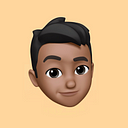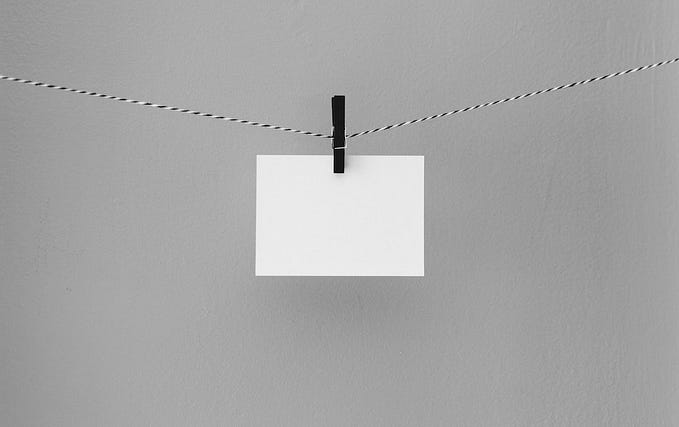Lessons Learned During Quarantine
Thoughts on social media, the need for creating, and perfectionism

I doubt any Gen-Z kid will ever forget the second week of March 2020. I remember as soon as my college classes were canceled, I thought that it wouldn’t be for more than a few weeks. In fact, I was glad because I could procrastinate my homework a bit. But as the days went by, this coronavirus thing turned out to be bigger than I expected. It was pretty clear this was going to last for months, which is when I decided to do an interesting personal experiment.
I randomly decided to go off Instagram. Why Instagram? Because I was really hooked on it. Instagram was like 90% of my social media usage, so I thought getting off Instagram would make social media redundant in my life. Little did I know that this small experiment would lead me literally changed my life and my career trajectory. Here are a few things I learned from this unplanned experiment.
Lesson 1: Information is a constant
Let’s face it. We, humans, are suckers for novel information. Even before social media, this was through gossip, television, radio, etc. Social media apps just reduced the friction to get interesting information. So as I got off Instagram, I unconsciously started seeking out other content-driven apps like Reddit, Twitter, Pinterest, etc. After a few days, I realized that I just replaced my appetite for information in a different way — meaning that my social media usage was not going down at all.
I came to realize that information is a constant in life. You can’t get away from it. We as humans are hardwired to be curious and this is not necessarily a bad thing. I used this epiphany to install Audible, Medium, Netflix, and Apple Podcasts on my phone. Apps that I could actually learn good stuff from instead of scrolling through a mindless feed. And just as I thought it would, it worked! I wasn’t bored or unconsciously starving for information. I had successfully displaced my Instagram addiction. Not just that, it gave me a newfound appreciation for long-form media — like books, documentaries, and podcasts. But consuming content this way gave rise to a different problem: too much information and too much consumption.
Lesson 2: Creating over consuming
Every time I read an article on Medium, I would be recommended 3 more which I was more compelled to read. I would read, read, and read — but to only feel like I accomplished nothing. Because I actually wasn’t accomplishing anything. It was so overwhelming that it actually took a severe toll on my mental health. The more I read, the more I thought I didn’t know and the more I felt the imposter syndrome. It was just a vicious cycle of overthinking. I knew that this was my mind playing tricks on me, and I figured out that it was because of my own actions. I was consuming too much. The old adage, too much of anything being bad for you is so true. Even too much good content can be bad.
So was the solution to just control how much I consumed? Yes, but I found out the hard way that it wasn’t the absolute correct answer. The answer was to create more than you consume. In order for any knowledge to really sink in, I had to implement it as actively as possible. So I made it a rule to try, experiment, and practice everything I learned. Even if I sucked at it. This included not just career-oriented learning, but also my physical therapy, workouts, and self-development.
Creating was fun. I think there is this unique joy one gets when they finish building something. For me, my main creative outlet was my journal and my personal Notion where I made creative docs to manage my personal finances, track my habits, and just organize my life. I also picked up some design software to practice UI design, learned this awesome no-code tool called Webflow to build amazing websites, and learned enough React to build fancy landing pages.
Life was good, but then as I practiced more and more I realized that I spent a lot of time trying to perfect what I was making. It was really holding me back, and actually exponentially lengthening the time I took to make anything. I remember going into this inescapable rabbit hole of perfecting the animations on my portfolio while binging on Gary Vee keynotes. Must have spent over 70 hours on that website, just to make something “perfect”. The marginal returns must have decreased starting the 12th hour. I basically wasted 58 hours on nothing meaningful except stroking my ego.
This brings me to my third and final lesson.
Lesson 3: Perfection is a myth
This doesn’t mean I am a proponent for shabby work, but rather a fierce anti-perfectionist. I know this is very cliche, and to a certain degree, I am sure I knew about this concept even before I wasted a lot of time perfecting things. But only after realizing the opportunity cost of perfection did I realize that I was too naive. However, in spite of all this, I was reluctant to give up the idea of perfection being all that bad.
I figured that rather than perfecting every step and every single detail, it helps to achieve perfection through iteration. Not repetition, iteration. What do I mean by that? Go start-to-end as many times as possible, or until you are satisfied with your definition of perfection. I tried this, and only very rarely did I iterate more than twice because the marginal returns just become so clear that the person automatically moves on to the next challenge. It also made it easy on my mind that I could always revisit something and make it better through iteration.
When all is said and done, I wish I knew about these things before making all these mistakes. But in a way, I am glad I learned the hard way. Now, I get to tell this story to strangers on the internet and get the pleasure of helping them not repeat these mistakes.
Cheers!








